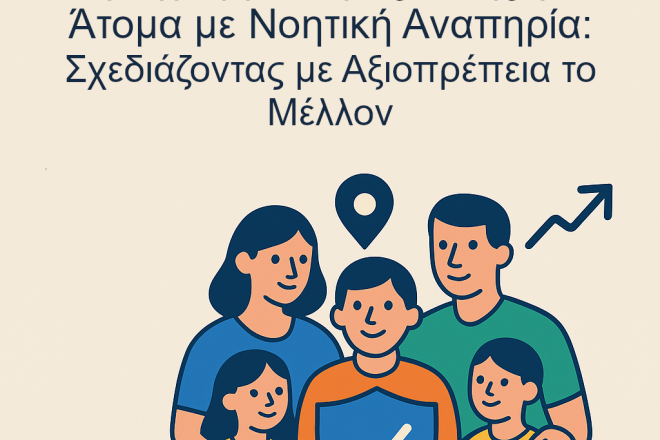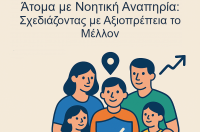Family Life Planning for People with Intellectual Disabilities
Designing a Future with Dignity
At our organization, we believe that every person with an intellectual disability (PWID) deserves a meaningful life—marked by dignity, participation, and purpose—not just survival. Family Life Planning is our commitment to this principle: a holistic, long-term approach that focuses on the person’s needs, aspirations, and capabilities, while also addressing the family’s concerns about the future. It is a tool we apply today, with the goal of expanding it tomorrow, to ensure that PWID live as independently and fully supported as possible.
Why Is It Important?
Many families with PWID are consumed by the demands of daily care. Without planning, the absence of caregivers often leads to rushed, unsuitable decisions: placements in generic institutions, isolation, or the loss of independence that took years to build. Family Life Planning changes this story.
By implementing it, we ensure:
-
Independence and Functionality: Through gradual inclusion in living, employment, and social participation programs.
-
Relief for Families: Easing the anxiety of “what happens after us,” with a proactive plan starting today.
-
Social Inclusion: People with disabilities become active participants, no longer sidelined.
What Does It Include?
Family Life Planning is a life map created collaboratively with the person and their family. It includes:
-
Personal Profile: Educational background, skills, therapeutic needs—a complete picture of the person’s abilities.
-
Goals & Preferences: Where the person wants to live, work, and engage socially.
-
Support Structures: Identifying services such as Day Centers, Supported Living Homes, or Personal Assistants.
-
Practical Steps: Everyday routines, transportation, and living conditions.
-
Family Commitments: Clear roles and continuity, guided by professionals.
How Do We Implement It?
-
Assessment: A multidisciplinary team (psychologists, social workers, occupational therapists) evaluates strengths and needs.
-
Family Participation: The family is actively involved—we listen, set shared goals, and plan together.
-
Person-Centered Approach: The plan is built around the individual, not around systems or obligations.
-
Flexibility: It adapts to changes in health, circumstances, and desires.
-
Psychoeducation: We support families with workshops and counseling to help them approach transition with confidence.
Our experience shows that families who engage in the process feel less stressed and gain a clearer vision for the future, enhancing their trust in our work.
What Changes?
-
From Care to Independence: Passive caregiving transforms into active participation, empowering the individual.
-
From Invisibility to Inclusion: PWID become visible members of society.
-
From Burden to Shared Responsibility: Families gain a roadmap that distributes responsibilities more equitably.
Our Vision for the Future
Family Life Planning is already a pillar of our work, but we aspire to go further:
-
Reach More Families: In cities and rural areas alike.
-
Build Partnerships: With municipalities, day centers, and businesses to create support networks.
-
Train Professionals: Equip social workers and therapists to implement life plans at scale.
-
Conduct Research: Document outcomes to inspire wider adoption and policy change.
We envision a world where Family Life Planning becomes standard practice—a fundamental right that begins in childhood and evolves throughout life.
How Can You Participate?
-
Families: Contact us to start building your loved one’s life plan—we’re here for you.
-
Volunteers: Join our team and contribute your time, skills, and ideas.
-
Supporters: Every donation—material or financial—brings us closer to making this vision a reality.
Family Life Planning is not just a service—it’s our promise that dignity is not a luxury, but a right we can build together, starting today.

